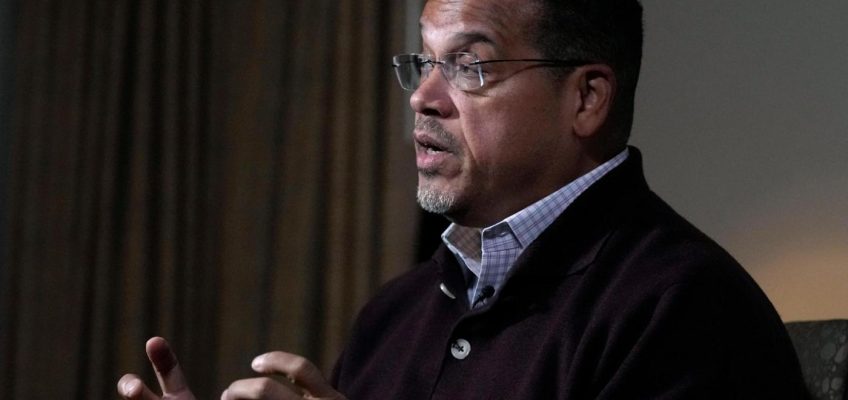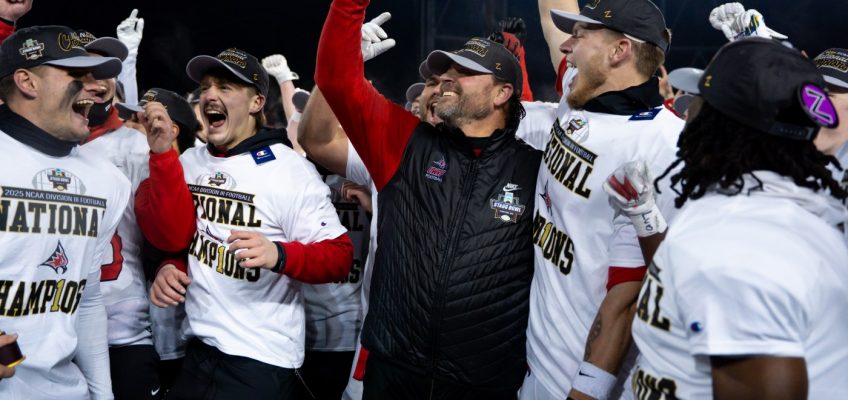The Washington County Board on Tuesday voted to have staff draft a letter to federal officials regarding rumors that the city of Woodbury is being considered for one of 23 Immigration and Customs Enforcement detention centers across the country.
The agency reportedly is planning to develop detention centers to house more than 80,000 immigrants and county officials want to get their opposition to a Woodbury center on the record.
“Let’s be clear that we’re opposing it,” said Vice Chair Bethany Cox. “Let’s be clear that we want open and honest communication just to give us an answer: ‘How do we respond to constituents? What’s the story there?’ And then, yes, if this is moving forward, there’s a public process that the city and the county have, and we expect transparency for people to follow through with it.”
Dozens of constituents have contacted county board members to express their concerns about a possible ICE detention center in the county, officials said. Two residents spoke about the issue during public comments at the board meeting on Tuesday.
One of them, Woodbury resident Paul Toveson, said the suburb is known “to be a city for families and made of all cultures.”
“Woodbury welcomes everyone,” Toveson said. “What would happen if a prison — a detention center or some other term to lock people up — came to Woodbury? Would we be known as a welcoming city for families to enjoy shopping here, enjoy the parks and relax in their home without fear? Or would we be known as a city who built a facility near two schools, a large church and several facilities for families?
“Would people want to live in Woodbury where perhaps a large fence is put up, protests are heard and making the Minneapolis and St. Paul papers for all the wrong reasons?”
Warehouses to detention centers?
The Washington Post reported last month that the Trump administration is developing a plan to “overhaul the United States’ immigrant detention system.” The plan would involve renovating industrial warehouses dotted around the country to serve as ICE detention centers, the Post reported, citing a draft solicitation for contractors that it reviewed.
The Post said the system would be made up of seven 5,000- to 10,000-bed warehouses and 16 smaller facilities. Two of the larger warehouses would be in Texas and five more in Arizona, Georgia, Louisiana, Missouri and Virginia.
Woodbury was listed as a location of one of the 16 smaller warehouses, with 500-1,500 beds, in a graphic that accompanied the article.
City officials in Woodbury have not been notified of any plans for an ICE detention center, said Commissioner Fran Miron. He said city officials contacted the owner of a property on Hudson Road mentioned as a possible location, and the property owners said they had not been contacted either.
“I think that’s a good sign from our perspective,” he said. “Typically we wouldn’t respond to these types of things, but they’ve gained some prominence because the media at high levels are reporting on these issues, but we’ve not received anything from the federal government or from ICE indicating that they have a desire to use a facility here in Washington County.”
Miron said one big question is whether the federal government can circumvent the authority of the county or the city.
“We don’t know any of those answers, and we’re just speculating at this point in time, so I believe the letter will be a good response,” Miron said. “If there is a request, we’re going to be open about it. We’re going to try to encourage a public process. We’re going to work collaboratively with any community that might be identified for a location like that and, and try to identify the issues that might be of concern.”
Public health and safety concerns
Board Chair Karla Bigham said she has concerns about the public-health impacts of any possible ICE detention center, particularly when “we’re in the middle of an influenza outbreak.”
Bigham also raised concerns about the “added pressure and burden” a detention center would have on local law enforcement. The Washington County Sheriff’s Office and the Woodbury Police Department would have to provide security for traffic control and “just keeping the community safe,” she said. “Staff is already stretched thin, and so is law enforcement in both of those departments. I just have great concern when it comes to that area, too.”
Commissioner Michelle Clasen, who represents Woodbury, said she wanted her constituents to know that they have been heard and that “there are conversations happening toward action at this time.”
“I want to be very clear, though, that the county doesn’t have a decision-making role in this space,” she said.
An ICE detention center on Hudson Road in Woodbury could be “a public-health nightmare,” said Clasen.
“It doesn’t have the sanitation,” she said. “It doesn’t have the water, not to mention the lawsuits regarding water usage, if that even applies in that building. There’s still a multitude of questions. There’s a public process that has to happen.”
Clasen supported putting together an advocacy letter to federal delegates, “because they’re really the ones who would be able to get the information that we’re looking for or we would hope they can get more information … and ask that they really look into this for us.”
Unwanted federal attention?
Cox said she was torn because a letter about a possible detention center might draw unwanted attention from federal officials.
“I feel like the state of Minnesota already has a lot of attention from our federal government on us, and I don’t want to say that if we ignore it, it will go away, but that seems to be some of what we’re seeing with our federal government,” Cox said. “I’m reading the emails, I see what’s there, and I hear the concerns. Believe me, I hear them. I am not trying to just put my head in the sand and make this, you know, bury it, but I’m torn. Let’s start drafting it, but let’s wait to send it until maybe we have more information later.”
Oakdale resident Laura Kittel, who also spoke at the board meeting, said she hopes county officials will send a letter to make a humanitarian statement.
“A warehouse is not a suitable home for human beings,” she said. “ICE is pretty much targeting brown people indiscriminately. A lot of the people here are here legally and they haven’t committed crimes. Even if they’ve overstayed a visa, that’s a civil offense and not a criminal one, and yet they’re being treated like criminals. I think that this should be concerning to everybody in our community. I do not find it acceptable to have ICE show up in our neighborhood. … Immigrants have a right to be here. They’re human beings as well. If they followed the law, and even if they haven’t, they don’t deserve to be treated like animals.”




